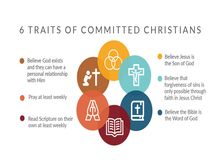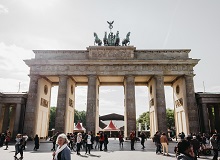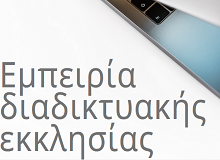


The Global Youth Culture Study found out about their struggles, beliefs, relationships, connectedness and who and what influences them.

The answer to the question ‘are you religious’ or ‘do you belong to a religion’ depends on what the respondents understand by being ‘religious.’

There is increasing cultural diversity that works against the traditional beliefs. The critical factor is the extent to which religious involvement is transmitted to the younger generation.

A survey finds that 64% of young people in Germany believe in God and 84% have prayed at least once.

“86% of GPs worried about women having a medical abortion past the legal limit or being coerced”, a poll finds. “The government has chosen to abandon woman to DIY abortion”.

According to a Gallup survey, 15,9% of Americans aged 19-24 identify themselves as LGBT. The poll also shows that among the general population, the figure reaches a record high (5,6%).

According to a Pew Research survey, young people tend to trust in others less. Italy has the highest rate of mistrust and Denmark the lowest.

The Spanish Evangelical Alliance publishes a report “to help churches reflect on the missionary challenges and possibilities of the new normality”.

A survey of the Swiss Federal Statistical Office shows that the membership of traditional religions has decreased in the country in the last 5 years.

The population that identifies as non-religious has grown by about 10% in Morocco, a survey says. Disillusionment and a waning trust in religious leaders are among the main reasons.

An anonymous online survey is launched in Spain “to get an overview of pornography use within the church and to develop support resources adapted to the needs that may arise”.

The State of Theology survey released by LifeWay Research and Ligonier Ministries “reveals that many evangelicals express erroneous views that mirror the broader U.S. population”.

“Evangelicals are sadly drifting away from God's absolute standard in Scripture”, says the chief academic officer of Ligonier Ministries, one of the authors of the survey.

A new narrative will be required as missionaries return to the new ‘normal’; narratives that define the shape of God’s mission in Europe.

A Pew Research Center survey shows that “people in emerging economies tend to be more religious and to say that belief in God is necessary to be moral”.

A survey shows that 57% of evangelicals often do notfreely express their opinions.

A research of Christian think tank Theos, also shows that Londoners are “more conservative and civically engaged”, and “26% feel marginalised because of their beliefs”

“Churches were shut, but many have never been busier”, said the United Kingdom Evangelical Alliance as the findings of the survey ‘Changing church: Responding to the coronavirus crisis’ were presented.

According to a CID Gallup survey, 44% of Salvadorans identify as evangelical, and 38% as Catholic. “In just one generation, the Catholic Church has lost 17% of its members”.

The evangelical platform Community in a Crisis calls church members from across Europe to respond to questions that will help “learn lessons from lockdown that will shape the future of the church”.

“Unemployment remains a reality in several EU nations”, a study of Pew Research says, which relates it to pessimism in future expectations.

The National Council of Evangelicals of France collected the data of 580 churches. 8 in 10 congregations have used video conferences and other online tools during the Covid-19 lockdown.

A Pew Research survey shows that 24% of adults say their faith has grown stronger, only 2% say it has become weaker.

A survey shows that women have more existential questions than men, while Protestants and Catholics are the ones who think more about the meaning of life.

Overall, only 57% of Europeans see religious freedom as a “very important” right, much behind fair judiciary (87%), gender equality (85%), free internet (69%) and others.

Las opiniones vertidas por nuestros colaboradores se realizan a nivel personal, pudiendo coincidir o no con la postura de la dirección de Protestante Digital.